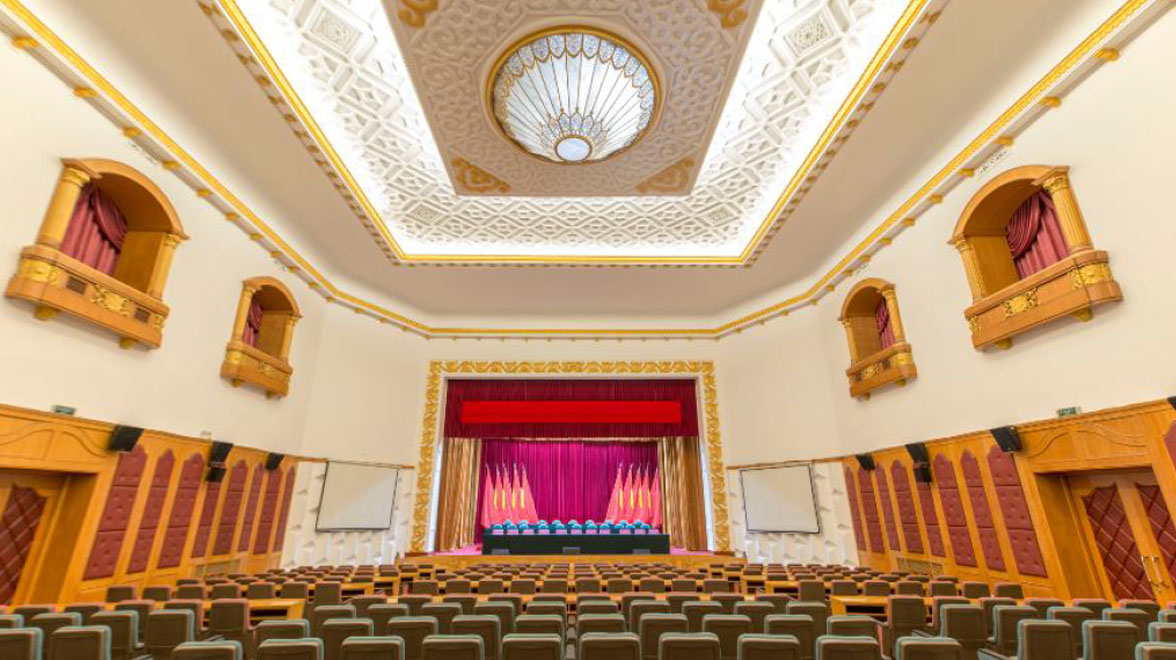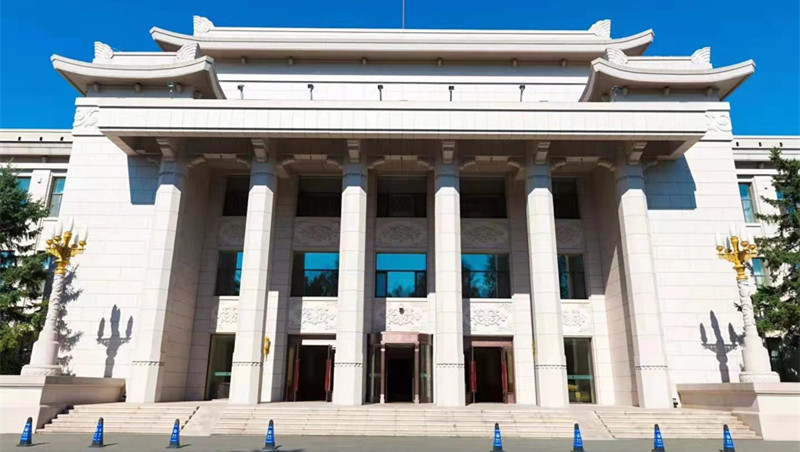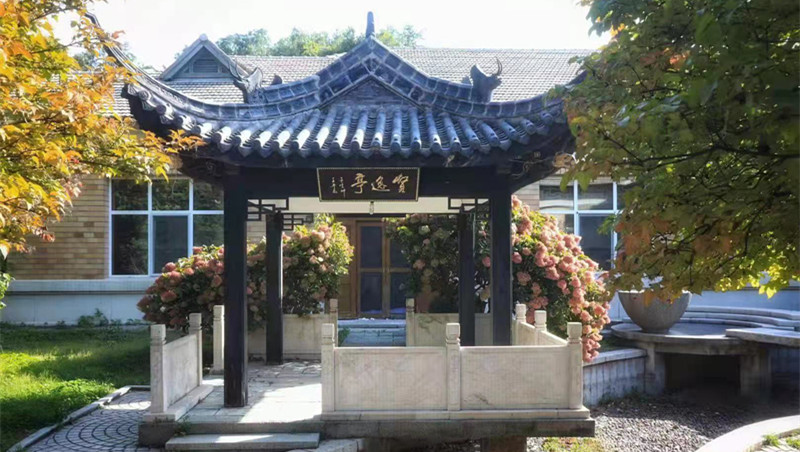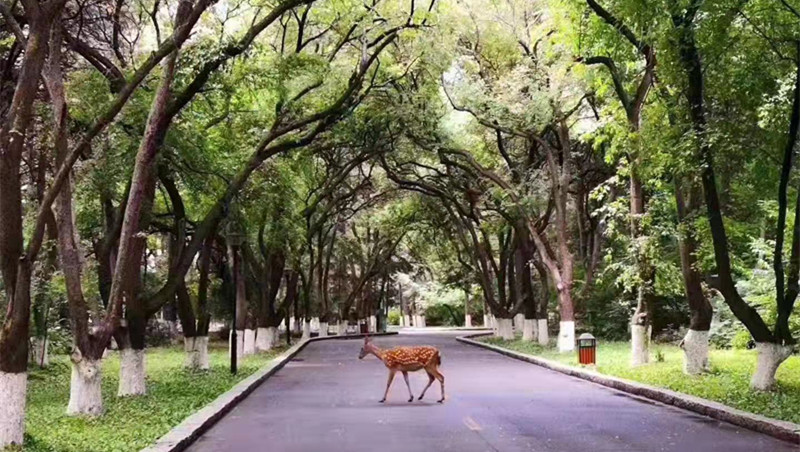International Conference on Luminescence (ICL) is a long-standing conference being held every three years.
In past decade, it has been held in Lyon (France, 2008), Ann Arbor (USA, 2011), Wrocalw (Poland, 2014), and Joao Pessoa (Brazil, 2017).
The conference is for scientist worldwide insterested in luminescence research to share their latest findings on luminescence phenomena. materials, techniques, devices and applications.
| 1. New luminescent materials and new methods |
| 2. Nanocrystals, quantum dots and nano-structured materials |
| 3. Spectroscopy of inorganic phosphors |
| 4. Spectroscopy of macromolecules, biomolecules and single molecules |
| 5. Luminescent materials for imaging and theranostics |
| 6. Persistent luminescence and photo-stimulated luminescence |
| 7. Excited state dynamics and ultrafast processes |
| 8. Coherent, nonlinear and high-resolution spectroscopy, four-wave mixing |
| 9. Theoretical modeling and computational methods for luminescence phenomena |
| 10. Field-induced luminescence in organic and inorganic media, OLEDs and FEDs |
| 11. Dynamics of photovoltaic and photocatalysis materials |
| 12. Applications of luminescence (white LED, lasers, displays, sensors, etc.) |
The conference will be held at South Lake Hotel (3798 Nanhu Rd., Changchun, China). In the conference building, there is a big lecture hall (for more than 550 seats) as well as three small halls.
It will be possible to plan four parallel sessions of lectures at the same time.
| Date | Event |
|---|---|
| April 1st, 2021 | In-Person and Online Registration Opens |
| June 10th, 2021 | Abstract Submission Deadline |
| June 15th, 2021 | Early Registration Deadline |
| July 1st−12th, 2021 | Presentation video upload (for online) |
| Prof. M. Shionoya | (Tokyo) | 1984 |
| Dr. R.M. Macfarlane | (IBM) | 1987 |
| Dr. A.A. Kaplyanskii | (Ioffe) | 1990 |
| Dr. M.J. Weber | (LLNL) | 1993 |
| Prof. D.S. McClure | (Princeton) | 1996 |
| Prof. E.I. Rashba | (Landau) | 1999 |
| Prof. G. Blasse | (Utrecht) | 2002 |
| Prof. W.M. Yen | (UGA) | 2005 |
| Dr. F. Auzel | (CNRS) | 2008 |
| Prof. G. Boulon | (Lyon) | 2011 |
| Prof. V.M. Agranovich | (Troitsk) | 2014 |
| Prof. H.U. Guedel | (Bern) | 2017 |
Venue ICL’23: Call for
proposals
The International Program
Committee (IPC) of the International Conference on Luminescence welcomes
proposals for organizing the ICL meeting in 2023, following the upcoming
meeting in Changchun, China, in July 2021. Information on the elements required
for a conference proposal and the conference venue are provided below. The ICL
is a leading international conference on luminescence spectroscopy, covering
state-of-the-art luminescence phenomena in a wide variety of materials,
including inorganic, organic, hybrids, bulk, nano and micro structured,
insulators, semiconductors, crystalline and amorphous materials. In the past
conferences have been held in Budapest (Hungary, 1966), Delaware (USA, 1968),
Saint Petersburg (Russia, 1972), Tokyo (Japan, 1975), Paris (France, 1978),
Berlin (Germany, 1981), Madison (USA, 1984), Beijing (China, 1987), Lisbon
(Portugal, 1990), Storrs (USA, 1993), Prague (Czech Republic, 1996), Osaka
(Japan, 1999), Budapest (Hungary, 2002), Beijing (China, 2005), Lyon (France,
2008), Ann Arbor (USA, 2011), Wroclaw (Poland, 2014) and João Pessoa
(Brazil,2017). The ICL alternates between different continents but there is no
strict rotation schedule. For the ICL in 2023 we welcome and encourage bids
from anywhere in the world! All proposals will be seriously considered and the
International Program Committee will make a selection by weighing the various
aspects indicated below. We hope to receive many proposals for venues to
continue the series of successful ICL-meetings in the next decade.
On behalf of the IPC,
Andries Meijerink,
Chairman
1.
Required elements for an ICL Conference proposal
1.
Information about your proposed venue: capacity, rooms, multimedia
facilities/support, reliable wireless internet access for all conference
attendees, etc.
2.
Information about logistics, accommodations, transportation in and around
your proposed location.
3. A
tentative plan on the structure of the conference, the agenda and preferred
dates for organizing the ICL in the summer of 2023. Possibilities for
coordinating the ICL’23 with satellite meetings in related/overlapping fields
to be organized just before or after the ICL meeting may also be addressed.
4.
Information on the researchers involved in the organization:
• Key people who will organize, promote
and staff the conference.
• The team's history with and
connection to the international luminescence community.
• Previous event organizing experience.
• Available administrative support.
• Potential support in
logistics/organization from students.
5.
Estimated cost per person for the conference. Affordability is an
important aspect for the ICL meeting. A good target is US$/Euro 400-500/person
and reduced rates for PhD students.
6.
Possibilities for support (funding) by local organizations and companies
to reduce the conference cost for participants and to support travel grants for
selected attendees.
7.
Information on local attractions, culture, weather conditions and other
aspects that affect the attractiveness of the venue.
2.
ICL conference requirements
1. Timing:
the ICL’23 will be held in the summer of 2023.
2. Venue
must be able to accommodate 400-600 people.
3. Venue
must have a plenary room capable of accommodating all attendees and smaller
rooms to allow for ~3-4 parallel sessions.
4. Reliable
wireless access capable of accommodating all conference attendees
simultaneously.
5.
Audio-visual support
6. The
venue should be located at a place with swift public transportation from/to an
international airport. Easy and affordable transportation between airport,
conference venue and accommodations/food is required. Conference attendees
should not have to rent cars/ hire taxis to get around.
7. Snacks,
coffee/tea during breaks, conference dinner, etc.
3.
Schedule The schedule for the selection process is:
• July 15th,
2021: Deadline for proposals.
• July/August
2021: Review and evaluation of proposals by the IPC members of the ICL.
Possibility for discussion between IPC members and for inquiries with venue
proposers on aspects that are not clear.
• September
2021: Voting on the venue by the IPC members.
4.
How to submit a proposal
If you are
considering to organize the ICL’23, please inform the IPC of the ICL by sending
an e-mail to the chairman of the IPC. We like to hear from you early in the
process so that we can offer advice and answer any questions you may have.
Also, it helps us anticipate the number of proposals that needs to be
considered. So please inform us as soon as possible if you consider submitting
a proposal. Please submit your final proposal before July 15 2021 via email in
PDF format to a.meijerink@uu.nl
5.
Decision Process
The International
Program Committee of the International Conference on Luminescence decides on
the venue by voting. All IPC members will weigh the various criteria and select
the venue that in their opinion meets the criteria for organizing the ICL the
best. For selection of a venue, a majority of votes is required. If, in a first
round, there is no venue with an absolute majority, the two venues with most
votes enter a second round.
6.
Questions?
If you have
questions, please contact the chairman of the IPC: a.meijerink@uu.nl. Unless
asked not to do so, the chairman will forward all inquiries to all IPC board
members to keep them informed on the response from the luminescence community
concerning the venue for the ICL’23 and to give them the opportunity to assist
in answering questions.
On December 30th 2020 Prof. George Blasse unexpectedly passed away at the age of 86. In the field of luminescence spectroscopy George Blasse was an authority. He made many important contributions that have shaped the field and continue to impact the future of luminescence research. He combined groundbreaking fundamental discoveries with societal relevance. George Blasse had a deep and also intuitive understanding of luminescence phenomena and often relied on clever chemical variations in host composition and structure to obtain insight in the underlying physics. Towards the end of his career George Blasse wrote the classic book ‘Luminescent Materials’ together with his partner Christa Grabmaier. In this symposium we will remember George Blasse as a teacher, mentor and colleague and share the scientific impact of his work and personal memories.
Organizer: Andries Meijerink (Utrecht University, The Netherlands)
Speakers:
| Alok Srivastava | GE Research, USA |
| Cees Ronda | Philips Research, The Netherlands |
| Pieter Dorenbos | TU Delft, The Netherlands |
| Martin Nikl | Czech Academy of Sciences, Czech Republic |
| Jun Lin | Changchun Institute of Applied Chemistry, China |
| Philippe Boutinaud | GE REcole Nationale Superieure de Chimie de Clermont-Ferrand, France |
| Andries Meijerink | Utrecht University, The Netherlands |
Video: Remembering George Blasse
Here is a video provided by professor Andries Meijerink for remembering professor George Blasse.
This video records a Lecture presented in 2014 in a special colloquium at the occasion of 100 years Research at Philips. In the Lecture, professor George Blasse talks about his research in the 1960s at Philips and also tells the interesting story of the discovery of YAG:Ce.c
The presentation is in Dutch, but professor Andries Meijerink has translated it and Stephan Zevenhuizen added the translation as subtitles.
At the beginning of December 2020 Prof. Sergey P. Feofilov (Ioffe Institute, Saint Petersburg, Russian Federation) has passed away. He was a leading and pioneering scientist in the field of luminescence of transition metal and lanthanide ions, especially when embedded in nanocrystals. He was also Editor of the Journal of Luminescence from May 2013 to May 2020, and member of the International Advisory Committee of ICL2020. The Organizers of this Conference have found it important to dedicate a Special Symposium to the commemoration of his great figure from both a scientific and a personal point of view.
Organizer: Marco Bettinelli (University of Verona, Italy)
Speakers:
| Andries Meijerink | Utrecht University, The Netherlands |
| Xiao-Jun Wang | Georgia Southern University, USA |
| Andrey V. Naumov | Russian Academy of Sciences, Russian |
| Martin Nikl | Czech Academy of Sciences, Czech Republic |
| Hairong Zheng | Shanxi Normal University, China |
| Marco Bettinelli | University of Verona, Italy |
The winners of the ICL2020 Young Presenter Award are listed below:
| Young Presenter Award |
| Chuanjiang Qin |
| Erving Ximendes |
| Jonas J. Joos |
| Chenguang Wang |
| Zhen Song |
| Jur de Wit |
| Meng Zhou |
| Luiz Fernanodo dos Santos |
| Fernando Maturi |
| Pengpeng Dai |
Each Young Presenter Award presentation will be awarded with EUR 100. Congratulations!
Criteria for the Young Presenter Award presentation are:
• Quality of the research, where important aspects are novelty, creativity, correctness of science.
• Quality of the presentation and how the results were explained, the structure of the presentation (clear introduction, comprehensible for everyone, well-explained, good conclusions, reference to earlier work), ability to correctly answer questions.
• Layout of the slides, clarity of the figures, style of presentation.
Selection process: The host (session chairman) of each session recommended one or two candidates to the committee. After discussing, the committee determined the candidate list.
The committee consists of Prof. Yichun Liu, Prof. Xintong Zhang, Prof. Feng Liu, Prof. Xiaojun Wang, and Prof. Andries Meijerink.
The winners of the ICL2020 Best Poster Award are listed below:
| Best Poster Award |
| Sofia Zanella |
| Matgorzata Sójka |
| Israel F. Costa |
| Zengchao Yu |
| Kamila Maciejewska |
| Karolina Elzbieciak-Piecka |
| Jialong Zhao |
| Huan Chen |
| Karolina Trejgis |
| Kirill N. Boldyrev |
Each Best Poster Award presentation will be awarded with EUR 100. Congratulations!
Criteria for the Best Poster Award presentation are:
• Quality of the research, where important aspects are novelty, creativity, correctness of science.
• Quality of the defense and explanation of the poster.
• Layout of the poster, clarity of the figures, clear goal in the beginning and conclusions in the end.
The committee determined the candidate list.
The committee consists of Prof. Yichun Liu, Prof. Xintong Zhang, Prof. Feng Liu, Prof. Xiaojun Wang, and Prof. Andries Meijerink.





